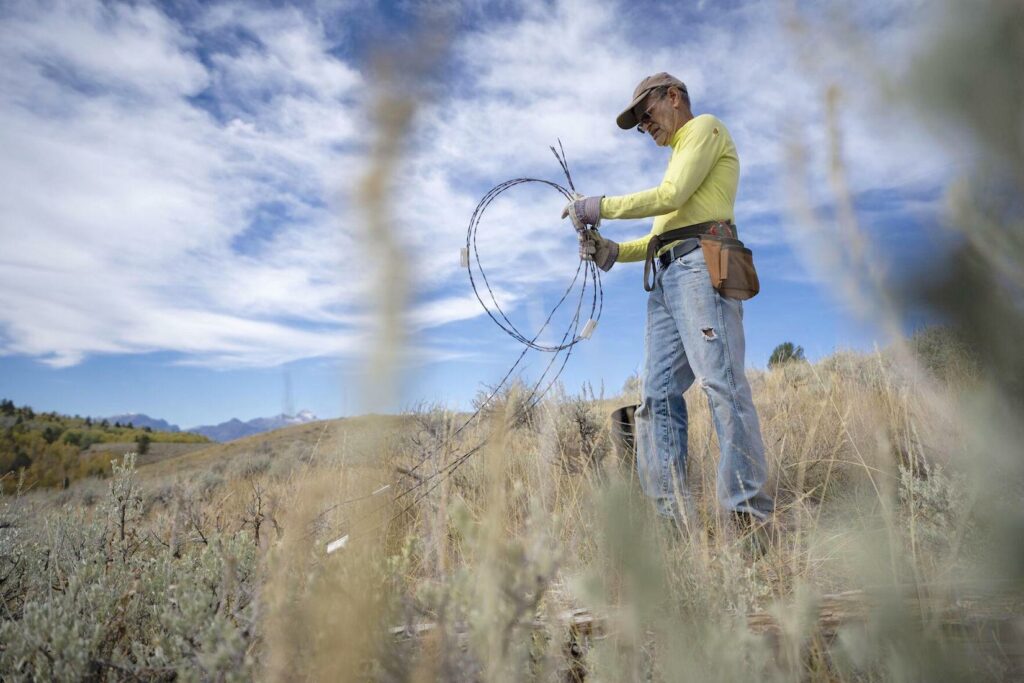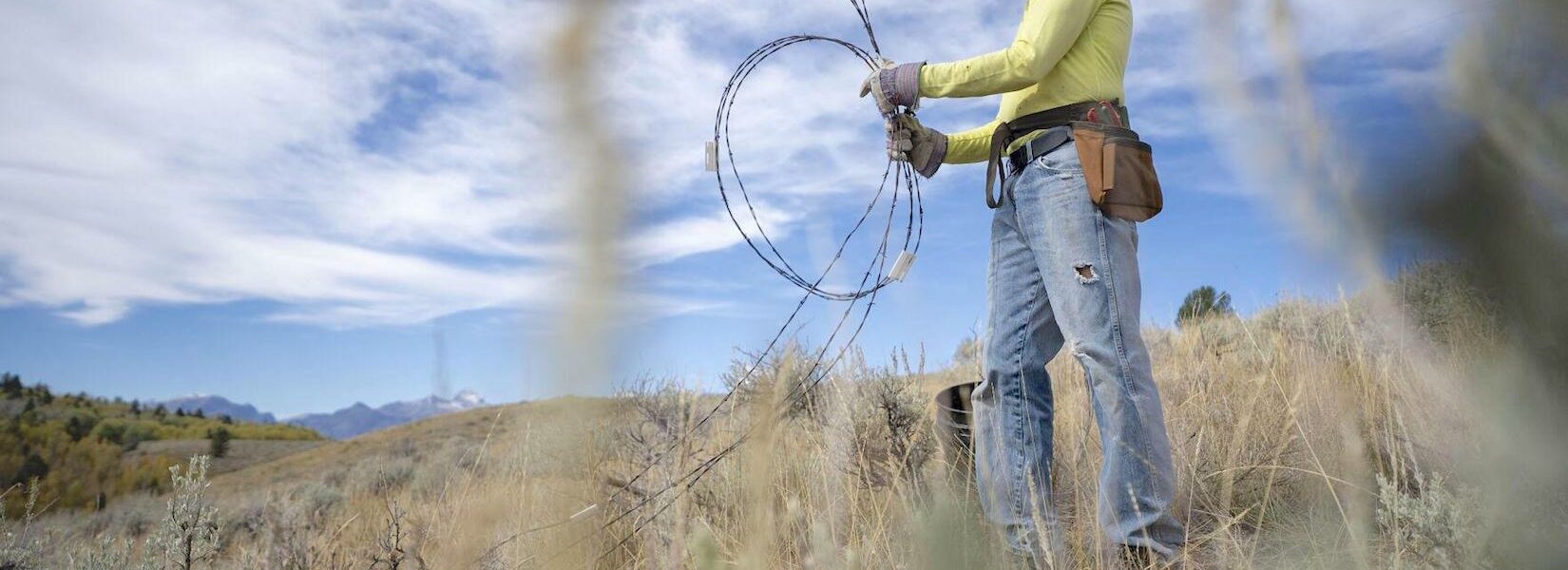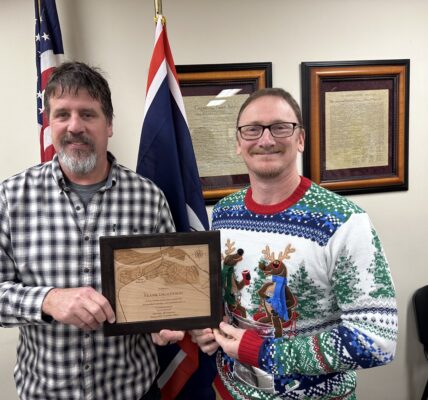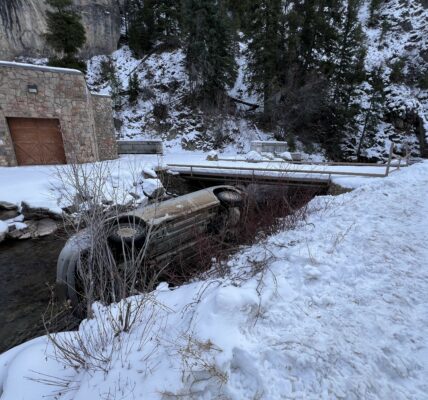
• While Freedom Caucus argues for completing the deal after inauguration, advocates hope to get it done sooner.
By Billy Arnold
Jackson Hole News&Guide
Via- Wyoming News Exchange
JACKSON — In mid-September, Arne Johanson paused while removing barbed-wire fence from the eastern edge of the Kelly parcel — one of the few impediments to wildlife movement on the pristine state trust land.
One of the other barriers, though invisible and unseen to the pronghorn, mule deer, elk and bighorn sheep that move through or reside on the parcel’s 640 acres, is politics.
That became acutely obvious last fall when state officials proposed auctioning the land on the open market as a way to generate money for Wyoming schools, spurring fears of development. In September, when an auction was still possible, Johanson knew that he wanted the state’s highest elected officials to act in favor of preservation.
“From the standpoint of the national park, I don’t think any of our tourists want to come see suburban houses,” Johanson said, arguing that Wyomingites should do “whatever we can do to help Mother Nature out, to help preserve all that stuff we loved, that brought us here, that will bring the next generation here.”
On Thursday, Wyoming officials voted unanimously to move closer toward Johanson’s vision, officially denying a proposal to auction the parcel.
Then, the state’s five elected officials voted unanimously to explore using proceeds from selling the Kelly parcel — and other state land previously sold to Grand Teton National Park — to buy property in the Powder River Basin for oil and gas development.
Finally, at the end of a contentious, three-hour meeting, they split 3-2 in support of a contract that paves the way for selling the Kelly parcel to Teton Park for $100 million, $37.5 million more than its appraised value. The sale would require Teton Park to continue allowing hunting and grazing on the parcel.
Gov. Mark Gordon, Auditor Kristi Racines and Treasurer Curt Meier voted to approve the contract.
Secretary of State Chuck Gray and Superintendent of Public Instruction Megan Degenfelder voted against it, arguing in part that waiting for the incoming Trump administration could produce a better deal.
But the deal still isn’t done.
Last winter, the Wyoming Legislature tied the sale of the Kelly parcel to the outcome of a separate public lands decision: the Bureau of Land Management’s Rock Springs Resource Management Plan, or RMP.
Before a deal can be consummated, Gordon has to certify that the Bureau of Land Management backed off from a few controversial provisions in its proposal for managing 3.6 million acres near Rock Springs. In order to do that, he needs to review the BLM’s record of decision, which hasn’t been released yet. How, exactly, Gordon will act remains to be seen.
It’s also unclear whether Gordon will make his decision before the Trump administration takes office after the January inauguration.
On Thursday, as officials debated the contract, some Wyoming legislators urged the governor and other state officials to wait.
“We are also rushing it under a lame duck administration, if you will,” said Rep. John Bear, R-Gillette, former chair of the hard-right Wyoming Freedom Caucus. “And I don’t think that that’s a wise decision on our part. I think that the upcoming administration probably would be much more amiable to a better deal.”
Advocates for the Kelly parcel are optimistic that the deal will be done before the transition of power.
“I feel pretty good that Kelly can happen before the end of this administration,” said Rob Wallace, a retired Department of the Interior official who oversaw the Park Service during the first Trump administration. “This is such a complicated deal, the sooner we can get it over the finish line, the better it’s going to be for preserving the Kelly parcel and getting it into the hands of the park.”
Gordon will have to make his decision in a changing landscape for public lands. The day after the Kelly parcel vote, the Biden administration released its final sage grouse management plan, prompting an immediate rebuke from the governor, who promised to protest the document and its conclusion.
Gordon already has protested the Rock Springs RMP and has not signaled whether he will certify the sale, even though the legislator who tied the RMP to the Kelly parcel sale has said the condition has been met.
Wallace acknowledged that there is a flurry of activity surrounding public lands in Wyoming. “Our little $100 million deal seems to be in the middle of a lot of them,” he said.
Other Wyomingites involved with Jackson Hole Wildlife Foundation’s September fence pull said they were worried about the Kelly parcel’s preservation and sale to the park getting caught up in politics.
“I worry and I get pissed off,” Kelly resident Beverly Boynton said of the possibility. “It’s not right.
“This is heavy duty and critical,” Boynton said of preserving the parcel.
Beyond being the terminus of the Path of the Pronghorn migration route, which the rugged speedgoats take every year to migrate from winter range in the Upper Green River Basin to summer range in the park, the Kelly parcel is winter range for elk and bighorn sheep.
It’s home to a handful of species that Wyoming classifies as “species of greatest conservation need” and is wildlife’s gateway from the Gros Ventre River drainage to more open landscape of Teton Park. It also boasts incredible views of the Teton Range.
And for all the politics, Gordon has signaled his interest in selling the parcel. On Thursday, as Degenfelder and Gray pushed for using the parcel as leverage for a larger land swap, Gordon defended the process and moving forward with a sale. After the vote concluded, he released a statement of support.
“In public testimony, I heard overwhelming support for this sale and the benefits it will bring to Wyoming students in the form of long-term revenue,” Gordon said. “This is an iconic parcel, and we have been given a unique opportunity for it to join Grand Teton National Park in perpetuity.”
Gordon also touted the potential for the sale’s proceeds to go toward purchasing land for extraction.





